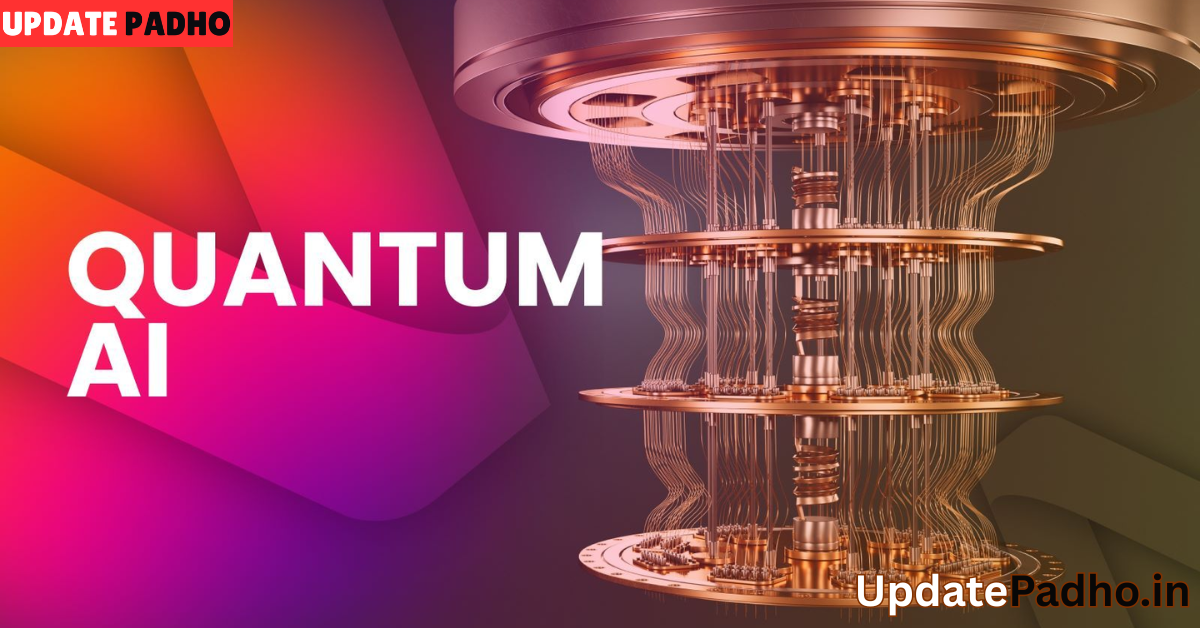Quantum AI is the synergy of quantum computing with artificial intelligence (AI). It leverages principles like superposition and entanglement to execute AI tasks—ranging from machine learning to optimization—far more efficiently than classical systems can. Instead of bits, quantum systems use qubits, which can represent multiple states simultaneously, enabling exponential parallelism .
Think of performing thousands of calculations at once—in seconds—that would take classical machines years. This is where Quantum AI derives its edge.
🧬 Core Technologies Behind it
1. Qubits, Superposition & Entanglement
- Qubits can exist in multiple states at once—unlike classical bits restricted to 0 or 1.
- Entanglement links qubits so that operations on one impact the others, enabling collective computation across the system.
2. Quantum Machine Learning (QML)
Quantum AI accelerates ML tasks like classification, clustering, and regression using quantum neural networks. These networks span deeper and broader structures, thanks to enhanced parallelism, and can solve problems classical AI finds intractable.
3. Hybrid Architectures
Today’s quantum hardware is delicate and specialized. Consequently, hybrid quantum–classical systems are common—where quantum units perform core computations and classical systems manage orchestration and refinement.
🚀 Key Features & Advantages
- Explosive Computational Power
Quantum AI can process massive datasets and run complex simulations at unprecedented speeds, thanks to exponential state decomposition . - Superior Optimization
Supply chain, logistics, financial portfolio optimization: Quantum algorithms excel at exploring vast solution spaces much faster than classical counterparts. - Enhanced Predictive Analytics
Especially in domains like climate modeling, biological system forecasts, and energy consumption—Quantum AI can capture subtle patterns otherwise unreachable. - Molecular and Materials Simulation
Quantum AI is ideal for drug discovery and novel material design by accurately simulating molecular behavior. - Cybersecurity & Cryptography
While quantum computing threatens classical encryption, Quantum AI also enables quantum-resistant cryptography and real-time threat detection. - Natural Language Processing & Computer Vision
Quantum NLP (QNLP) uses circuits that understand grammar and semantics, offering speed gains in translation or classification tasks.
🏭 Real-World Use Cases
- Finance:
Quantum AI can optimize portfolios, model risk, and detect fraud through real-time pattern recognition . - Healthcare:
By simulating molecules for drug design and analyzing genomic data, Quantum AI accelerates personalized treatments. - Logistics:
It optimizes routing and inventory—reducing costs and complexity in global supply chains. - Climate Science & Energy:
Quantum AI improves energy grid management and simulates climate and weather interactions for better forecasting.
🔬 Leading Quantum AI Platforms
- IBM Quantum System Two & Heron processor:
IBM is deploying modular quantum systems integrating quantum and classical infrastructure getguru.com+12barrons.com+12en.wikipedia.org+12. - Google’s Willow:
The supercomputer chip offers error correction and massive speed—performing tasks in minutes that would otherwise take eons cadenaser.com+1en.wikipedia.org+1. - Quantinuum:
Merging hardware and software, Quantinuum is advancing quantum-natural-language processing, Monte Carlo engines, and more, with 99.9% qubit fidelity thetimes.co.uk+2time.com+2en.wikipedia.org+2. - Academic & Start-Up Contributions:
Examples include IIT-Indore’s quantum AI system for detecting cancer mutations timesofindia.indiatimes.com, IBM’s AlphaQubit for AI-based error correctionreddit.com, and China’s Jiuzhang quantum AI, reportedly millions of times faster in certain tasks time.com+1reddit.com+1.
⚠️ Challenges & Roadblocks
- Fragile Hardware & Noise
Qubits easily lose information; robust error correction and fault tolerance are essential but still emerging infobip.comtechradar.com. - Scalability
More qubits require extreme conditions—low temperatures, shielding—and scaling remains difficult and costly getguru.com. - Skill Gaps
Quantum AI demands expertise in both quantum mechanics and AI—talent that’s in short supply. - Ethics & Security
Powerful predictive tools raise privacy and misuse concerns. Governance must precede deployment. - Early-stage Technology
Many breakthroughs are still research-focused and lack commercialization; practical applications are limited.
🌟 The Road Ahead
Quantum AI is in its Noisy Intermediate-Scale Quantum (NISQ) phase—progress is rapid, but practical, error-corrected quantum AI still lies years away. The next benchmarks are logical qubits with real-world performance, integration into AI workflows, and regulatory frameworks around security and ethics.
Governments, like India’s National Quantum Mission (~₹6,000 cr), along with the EU, US, UK, and China, are investing heavily in quantum research and talent infrastructure.
💡 Conclusion
Quantum AI stands at the threshold of transforming industries. With its promise of exponential speed-ups, better optimization, and stronger intelligence, it could reinvent finance, healthcare, energy, logistics, and beyond. But to unleash that potential, the current hurdles—hardware fragility, technical skill gaps, and ethical deployment—must be overcome.
For researchers, policymakers, and businesses alike, investing in Quantum AI today is a strategic move toward a future that blends quantum physics with artificial intelligence to solve some of humanity’s most complex challenges.



